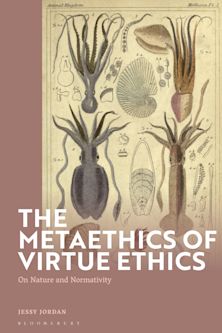- Home
- ACADEMIC
- Philosophy
- Ethics and Moral Philosophy
- Iris Murdoch's Ethics
This product is usually dispatched within 2-4 weeks
- Delivery and returns info
-
Flat rate of $10.00 for shipping anywhere in Australia
You must sign in to add this item to your wishlist. Please sign in or create an account
Description
In Iris Murdoch's Ethics: A Consideration of Her Romantic Vision, Megan Laverty draws upon the tradition of 'Philosophical Romanticism' to account for Murdoch's enigmatical quality and her embrace of paradoxical truths. Laverty's provocative, yet accessible, study analyses Murdoch's version of Kant's Copernican Revolution, the centrality of learning and the sublime to Murdoch's redemptive vision, and Murdoch's understanding of philosophy, imagination, freedom, love and art.
Laverty interprets Murdoch's emphasis on humility and attention as a critique of the Romantic emphasis on irony and self-creation. Drawing on a range of literary and philosophical sources, Laverty's study is a testimony to the ongoing significance of Murdoch's contribution to a broad range of contemporary philosophical concerns.
Table of Contents
Chapter One: A Philosophy of the 'Third Way'
Chapter Two: Reading Murdoch: Literary Form and Philosophical Precedents
Chapter Three: Romanticism Reconsidered
Chapter Four: Resistance and Reconciliation
Chapter Five: Murdoch's Romantic Vision
Bibliography
Index
Product details
| Published | 30 Sep 2007 |
|---|---|
| Format | Hardback |
| Edition | 1st |
| Extent | 160 |
| ISBN | 9780826485359 |
| Imprint | Continuum |
| Dimensions | 234 x 156 mm |
| Series | Continuum Studies in British Philosophy |
| Publisher | Bloomsbury Publishing |
About the contributors
Reviews
-
'Laverty has taken philosophical discussion of Murdoch a good deal further for us all ... Laverty's book offers a wealth of insight and illumination, both about Murdoch and about the broader issues of continuing philosophical importance to which she links Murdoch's work. Anyone interested in Murdoch's philosophy, but also others with an interest in the wider context in which Laverty locates Murdoch, will find Laverty's book stimulating and fruitful. And it will certainly become an indispensable text for further philosophical work inspired by Murdoch's writings.' Notre Dame Philosophical Reviews, 2008



































